Are THCA Concentrates Legal? State-by-State Guide 2025
If you've recently discovered THCA concentrates and are wondering about their legal status, you're not alone. The question "are THCA concentrates legal?" has become one of the most searched queries in the cannabis industry as consumers navigate an increasingly complex regulatory landscape.
THCA (tetrahydrocannabinolic acid) exists in a fascinating legal gray area that confuses even seasoned cannabis consumers. Unlike its better-known counterpart THC, THCA is non-intoxicating in its raw form. However, when heated through smoking, vaping, or cooking, it converts to Delta-9 THC—the compound responsible for cannabis's psychoactive effects. This chemical relationship creates a legal paradox that has left consumers, retailers, and law enforcement agencies scratching their heads.
The confusion surrounding THCA legal status 2025 stems from conflicting federal and state regulations, ambiguous language in the 2018 Farm Bill, and rapidly evolving interpretations by regulatory agencies. What's legal to purchase in one state might land you in legal trouble just across the border. Adding to the complexity, some products labeled as "hemp-derived" fall into different legal categories than those from marijuana plants, even though they may be chemically identical.
Important Disclaimer: This article provides general information about the legal landscape surrounding THCA concentrates and should not be construed as legal advice. Laws vary significantly by jurisdiction and change frequently. Always consult with a qualified attorney in your state before purchasing, possessing, or traveling with THCA products. When in doubt, verify current local regulations and purchase only from licensed, compliant sources.
Federal Legal Status: The 2018 Farm Bill and Beyond
Understanding whether THCA is legal federally requires examining the landmark legislation that reshaped America's cannabis landscape: the 2018 Farm Bill.
The 2018 Farm Bill's Hemp Definition
The Agriculture Improvement Act of 2018, commonly known as the THCA Farm Bill, removed hemp from the Controlled Substances Act's definition of marijuana. This historic legislation defined hemp as Cannabis sativa L. with a Delta-9 THC concentration of no more than 0.3% on a dry weight basis. This seemingly simple definition created a massive loophole that the THCA industry has leveraged.
The critical detail here is that the Farm Bill specifically measures Delta-9 THC, not THCA. Since THCA is the acidic precursor that hasn't yet been converted to THC through decarboxylation, products high in THCA but low in Delta-9 THC technically meet the federal hemp definition. This has allowed manufacturers to produce hemp derived THCA legal products that can contain substantial amounts of THCA while remaining under the 0.3% Delta-9 THC threshold.
THCA Not Explicitly Scheduled
Unlike Delta-9 THC, which is a Schedule I controlled substance under federal law, THCA itself is not explicitly listed in the Controlled Substances Act. This creates the foundation for the THCA legal gray area that exists today. If a product is derived from legally grown hemp and contains less than 0.3% Delta-9 THC, it technically meets the federal definition of legal hemp—regardless of its THCA content.
However, this interpretation isn't universally accepted, and therein lies the problem.
DEA Interim Final Rule and Interpretation
In August 2020, the Drug Enforcement Administration (DEA) published an Interim Final Rule that attempted to clarify the implementation of the 2018 Farm Bill. The DEA stated that "all synthetically derived tetrahydrocannabinols remain schedule I controlled substances," but also acknowledged that the Farm Bill's definition of hemp includes "any part of that plant, including the seeds thereof and all derivatives, extracts, cannabinoids" with the appropriate THC concentration.
The DEA's position creates tension when examining THCA vs THC legal distinctions. While the agency hasn't explicitly prohibited naturally occurring THCA from hemp, there's ongoing debate about whether high-THCA products violate the spirit, if not the letter, of federal law.
Natural vs. Synthetic THCA
A crucial distinction in THCA concentrate legality is the source of the cannabinoid. THCA that naturally occurs in hemp plants and is extracted through conventional methods (like CO2 extraction or hydrocarbon extraction) has a stronger legal argument than synthetically produced THCA or THCA created through chemical conversion of other cannabinoids.
The DEA has made clear that synthetic cannabinoids remain illegal, which means any THCA produced through chemical synthesis or isomerization would be federally prohibited. This is why reputable manufacturers emphasize that their products contain naturally derived THCA from hemp plants.
Total THC Calculations: The Federal Complication
One of the most significant complications in federal THCA regulation is the concept of "total THC." The USDA's regulations for hemp cultivation require testing for "total THC," which includes a calculation that converts THCA to its THC equivalent using the formula: Total THC = (THCA × 0.877) + Delta-9 THC.
This creates a paradox: while the Farm Bill definition of hemp only references Delta-9 THC, the USDA's testing requirements for growers consider total potential THC. This inconsistency has led to confusion about whether finished THCA concentrates should be evaluated based solely on Delta-9 THC content or total potential THC.

The Legal Gray Area Explained
The phrase "THCA legal gray area" has become common in cannabis industry discussions, but what does it actually mean in practical terms?
THCA as a THC Precursor
THCA is chemically and functionally the precursor to Delta-9 THC. In living cannabis plants, almost all THC exists in its acidic form (THCA). Only through decarboxylation—the application of heat through smoking, vaping, or cooking—does THCA convert to the intoxicating THC molecule.
This creates a legal and philosophical question: Should a non-intoxicating compound be regulated the same way as its intoxicating counterpart, especially when one easily converts to the other? Law enforcement and regulatory agencies have different views on this question, leading to inconsistent enforcement.
How Law Enforcement Views THCA
From a law enforcement perspective, THCA state laws create significant challenges. Officers in the field cannot distinguish between high-THCA hemp products and marijuana products without laboratory testing. Both may look, smell, and even test positive for cannabinoids using field testing kits.
Some jurisdictions have taken an aggressive stance, treating high-THCA products as marijuana regardless of their Delta-9 THC content, arguing that the THCA will inevitably be converted to THC through consumption. Other jurisdictions have adopted a more permissive approach, focusing solely on the Delta-9 THC content as specified in federal law.
This inconsistency means that where is THCA legal can vary not just by state, but by county or even by individual law enforcement interpretation.
Recent Court Cases and Legal Precedents
Several court cases have begun to shape the legal landscape around THCA:
AK Futures LLC v. Boyd Street Distro, LLC (2022): A federal court in California ruled that THCA derived from hemp is legal under the Farm Bill, as long as the Delta-9 THC content remains below 0.3%. This case provided significant support for the hemp-derived THCA industry.
State enforcement actions: Multiple states have conducted raids on retailers selling high-THCA products, with varying outcomes. Some cases have been dismissed when testing confirmed Delta-9 THC levels below 0.3%, while others have proceeded based on total THC calculations or state-specific prohibitions.
These cases are creating a patchwork of precedents that will likely take years to fully resolve, especially as the issue may eventually require Supreme Court clarification or new federal legislation.
The "Total THC" Testing Controversy
Perhaps the most significant aspect of the gray area involves testing methodologies. Pre-decarboxylation testing shows minimal Delta-9 THC in fresh cannabis, while post-decarboxylation testing shows the total potential THC after conversion. The question "can I buy THCA concentrates?" often depends on which testing method a particular jurisdiction recognizes.
Manufacturers argue that since THCA is non-intoxicating and the Farm Bill specifically references Delta-9 THC, only pre-decarboxylation testing should matter for hemp compliance. Critics argue that products clearly intended to be heated and consumed should be evaluated based on their total THC potential.
State-by-State Breakdown: Where Can You Legally Purchase THCA Concentrates?
Understanding THCA legal states versus THCA illegal states requires examining each jurisdiction's specific approach to cannabis and hemp regulation.
Fully Legal States (Adult-Use Cannabis)
In states where adult-use cannabis is fully legal, THCA concentrates are generally available through both licensed cannabis dispensaries and hemp retailers. These states include:
California: Comprehensive legal framework for both cannabis and hemp products. THCA concentrates available through licensed retailers with appropriate testing and labeling.
Colorado: One of the first adult-use states, with mature regulatory systems accommodating both cannabis and hemp-derived products.
Washington: Legal through licensed cannabis retailers; hemp-derived products also permitted under state hemp program.
Oregon: Robust legal market with both cannabis dispensaries and hemp retailers selling THCA products.
Nevada: Fully legal for adults 21+, with THCA concentrates available through dispensaries and hemp stores.
Illinois: Legal adult-use market since 2020; THCA products available through licensed channels.
Michigan: Adult-use legal with active hemp industry; THCA concentrates sold through various retail channels.
Massachusetts: Legal adult-use market with hemp program allowing THCA products.
Maine: Legal for adult use; hemp-derived THCA also permitted.
Vermont: Adult-use legal with accommodating hemp regulations.
New York: Legal adult-use market with developing regulations around hemp-derived cannabinoids.
New Jersey: Legal adult-use with hemp products also permitted.
Connecticut: Newer adult-use market with hemp program.
Rhode Island: Legal adult-use since 2022.
Delaware: Recently legalized adult use.
Maryland: Legal adult-use with hemp provisions.
Missouri: Adult-use legal since 2023.
Alaska: Long-standing legal market accommodating THCA products.
Arizona: Legal adult-use with active hemp industry.
Montana: Adult-use legal with hemp program.
New Mexico: Legal adult-use market.
Virginia: Legal adult-use with hemp provisions.
Minnesota: Recently legalized adult use.
Ohio: Recently approved adult use.
Medical Cannabis States
These states permit cannabis for medical purposes and may allow hemp derived THCA legal products under their hemp programs:
Florida: Large medical cannabis market; hemp-derived THCA products sold outside the medical program, though regulatory scrutiny is increasing.
Pennsylvania: Medical-only cannabis; hemp-derived THCA available but faces regulatory uncertainty.
Louisiana: Medical cannabis permitted; hemp program allows THCA products with evolving regulations.
Arkansas: Medical cannabis only; hemp-derived THCA products in legal gray area.
North Dakota: Medical cannabis permitted; hemp-derived products subject to state hemp regulations.
South Dakota: Medical cannabis only; hemp products including THCA face restrictive interpretation.
West Virginia: Medical cannabis program; hemp-derived THCA availability varies.
Mississippi: Medical cannabis program; hemp regulations developing.
Alabama: Medical cannabis program; hemp products including THCA in uncertain status.
Oklahoma: Medical cannabis market; hemp-derived THCA products available.
Utah: Medical-only with restrictive hemp regulations; THCA products face challenges.
Hawaii: Medical cannabis; hemp-derived products permitted but regulated.
Hemp-Derived THCA States (No Adult-Use Program)
Several states without adult-use or medical cannabis programs have allowed hemp-derived THCA products to flourish under federal hemp law:
Texas: No cannabis program, but hemp is legal. THCA products sold widely, though the state has attempted regulatory action against high-potency hemp products.
Tennessee: Active hemp market with THCA products readily available, though state regulators have expressed concern.
Georgia: Hemp program permits THCA products; no cannabis program exists.
North Carolina: Robust hemp industry with THCA products available; cannabis legislation pending.
South Carolina: Hemp program allows THCA products; no cannabis program.
Kentucky: Major hemp producer with THCA products available under federal hemp law.
Indiana: Hemp permitted; THCA products sold, though state enforcement varies.
Wisconsin: Hemp program allows THCA products under federal definition.
Nebraska: Limited hemp program; THCA products in uncertain status.
Kansas: Hemp permitted; THCA products face regulatory scrutiny.
Prohibited or Highly Restrictive States
Some states have explicitly prohibited THCA concentrates or enacted regulations that effectively ban high-potency hemp products:
Idaho: Extremely restrictive; prohibits all forms of THC including THCA, even if hemp-derived.
Iowa: Restrictive hemp program; THCA concentrates effectively prohibited.
Wyoming: No cannabis program; restrictive hemp interpretation makes THCA products risky.
States in this category often interpret hemp laws narrowly or have explicitly amended their laws to prohibit intoxicating hemp-derived cannabinoids, including THCA.
States with Unclear or Evolving Regulations
Several states fall into a category where THCA concentrate regulations are unclear or actively changing:
New Hampshire: Hemp permitted but regulations around THCA products unclear.
Oregon: While adult-use is legal, state hemp regulations have created complexity around hemp-derived THCA products.
Minnesota: Recently legalized adult use, creating transition period for hemp-derived products.
This legal patchwork means that the answer to "where is THCA legal" changes frequently and requires ongoing monitoring of state legislative and regulatory developments.
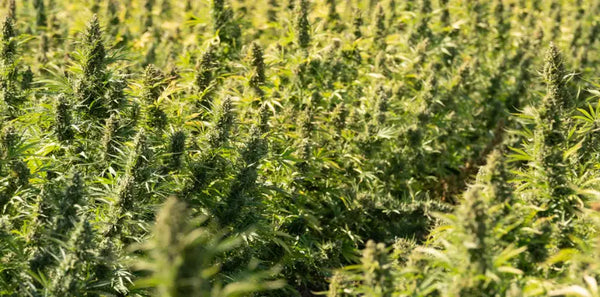
How States Test and Regulate THCA Products
Understanding THCA concentrate regulations requires examining how different jurisdictions approach testing and compliance.
Pre-Decarboxylation vs. Post-Decarboxylation Testing
The most significant technical issue in THCA regulation is the testing methodology:
Pre-decarb testing: Measures cannabinoids in their current state without applying heat. This method shows high THCA but low Delta-9 THC levels, allowing products to meet the 0.3% Delta-9 THC definition of hemp.
Post-decarb testing: Applies heat to simulate consumption, converting THCA to THC before measurement. This shows total potential THC and often results in levels far exceeding 0.3%.
States aligned with federal hemp law typically use pre-decarb testing, measuring only Delta-9 THC as specified in the Farm Bill. However, some states require total THC calculations that effectively prohibit high-THCA products despite low Delta-9 THC levels.
The 0.3% THC Threshold Complications
The 0.3% threshold was originally established somewhat arbitrarily in 1976 by Canadian researchers Ernest Small and Arthur Cronquist. It was adopted into U.S. law through the 2018 Farm Bill without extensive scientific justification for this specific percentage.
For THCA concentrates, this threshold creates complications:
- Measurement timing: Cannabis plants naturally convert THCA to THC over time, especially during storage and testing delays.
- Testing variability: Different laboratories may produce different results based on methodology, equipment, and timing.
- Enforcement discretion: The USDA allows a "measurement of uncertainty" that can extend the acceptable range beyond 0.3%.
State-Specific Testing Requirements
Different states impose varying testing requirements:
California: Requires comprehensive testing including potency, pesticides, heavy metals, microbials, and residual solvents. Uses total THC calculations for compliance.
Colorado: Detailed testing requirements with specific action limits for contaminants. Total THC calculations used.
Florida: Hemp program requires batch testing with Certificate of Analysis (COA). Enforcement around high-THCA products increasing.
Texas: Requires testing and COAs for hemp products, though enforcement approach to THCA products remains inconsistent.
Compliance Challenges for Retailers
Retailers selling THCA concentrates face numerous compliance challenges:
Age verification: Most states require retailers to verify purchasers are 21+ for intoxicating hemp products.
Labeling requirements: Specific warning labels, ingredient lists, and potency information must be displayed.
Testing documentation: Maintaining current COAs showing compliance with Delta-9 THC limits.
Interstate commerce: Navigating different state requirements when shipping or transporting products.
Licensing: Some states require specific licenses for selling hemp products, especially those containing THCA.
Retailers must stay current with rapidly changing regulations, as states frequently amend hemp laws in response to the growing THCA market.
Traveling with THCA Concentrates: Know the Risks
The question of traveling with THCA concentrates involves complex federal and state law intersections.
TSA Regulations and Air Travel
The Transportation Security Administration (TSA) follows federal law, which technically permits hemp products containing less than 0.3% Delta-9 THC. However, TSA's primary mission is security, not cannabis enforcement, leading to these considerations:
TSA's official stance: TSA allows hemp-derived products that comply with federal law (less than 0.3% Delta-9 THC). Officers are trained to look for security threats, not cannabis violations.
Reality at checkpoints: TSA officers cannot distinguish between legal hemp products and illegal cannabis without laboratory testing. If THCA concentrates are discovered, officers may alert local law enforcement.
Destination matters: Even if TSA permits you to fly, landing in a state where THCA is prohibited means you could face local enforcement action.
Recommendations:
- Carry products in original packaging with visible COAs
- Keep products in checked luggage when possible
- Research laws at your destination before traveling
- Consider the risk vs. reward of traveling with THCA products
Interstate Travel by Car
Driving across state lines with THCA concentrates creates different legal considerations:
Federal legality: Interstate commerce in hemp is federally legal if products meet the 0.3% Delta-9 THC requirement.
State-by-state enforcement: Crossing into a state where THCA is prohibited means violating that state's laws, regardless of federal hemp law. State and local police can enforce state laws, even if they conflict with federal hemp provisions.
Border checkpoints: Some states operate checkpoints near borders where vehicles are subject to search. This is particularly common along southern state borders and major drug trafficking routes.
Practical advice:
- Map your route and research laws in every state you'll pass through
- Keep products sealed in original packaging with COAs
- Understand that state law governs what happens if stopped by state/local police
- Consider shipping instead of traveling with products
International Travel Warnings
International travel with THCA concentrates is extremely risky and generally not advisable:
Most countries prohibit THC: Even if THCA is legal where you're traveling from, most countries classify all forms of THC as controlled substances.
Customs enforcement: International border crossings involve customs inspections where THCA products could be discovered and confiscated, potentially resulting in arrest.
Legal systems vary: What might be a civil infraction in the U.S. could carry severe criminal penalties in other countries.
Canada-U.S. border: Even though cannabis is legal in Canada, bringing any cannabis products across the international border remains federally illegal and can result in federal charges, lifetime border crossing bans, or both.
Do not travel internationally with THCA concentrates under any circumstances.
Mailing and Shipping Laws
Shipping THCA concentrates involves both federal and state considerations:
USPS: The U.S. Postal Service follows federal law. Hemp products containing less than 0.3% Delta-9 THC are technically legal to ship, but USPS has broad authority to open packages suspected of containing cannabis.
Private carriers (FedEx, UPS): Private shipping companies maintain their own policies. Many prohibit shipping cannabis-related products even if federally legal, and they reserve the right to open and inspect packages.
State destination laws: Shipping to a state where THCA is prohibited could violate state law, even if the shipment itself is federally legal.
Best practices:
- Only purchase from retailers who understand shipping compliance
- Verify the destination state permits THCA products
- Keep all shipping documentation and COAs
- Use reputable carriers with experience in hemp products
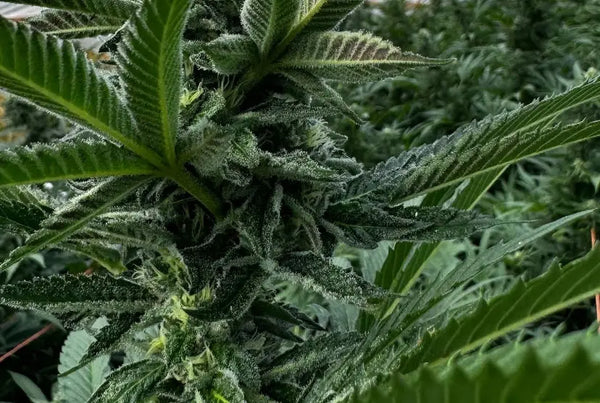
The Future of THCA Regulation
The future of THCA legal status 2025 and beyond remains uncertain, but several trends are emerging.
Pending Federal Legislation
Several pieces of federal legislation could impact THCA concentrate legality:
Hemp regulations updates: The USDA continues to refine its hemp cultivation rules, which could include new provisions for high-THCA hemp or total THC calculations.
Cannabis reform bills: Multiple federal cannabis reform bills have been introduced in Congress, including the MORE Act, SAFE Banking Act, and Cannabis Administration and Opportunity Act. Any of these could reshape how THCA is classified and regulated.
DEA scheduling reviews: The DEA periodically reviews scheduling of controlled substances. THCA could be explicitly addressed in future scheduling actions or guidance documents.
State Legislative Trends
At the state level, THCA state laws are evolving rapidly:
Restrictive amendments: Several states have introduced or passed legislation specifically targeting "intoxicating hemp products," including THCA. These laws often establish potency limits, licensing requirements, or outright prohibitions.
Regulatory framework development: Other states are working to create comprehensive regulatory frameworks that acknowledge THCA products while establishing consumer protections, testing standards, and retailer licensing.
Tax revenue incentives: Some states are considering taxation schemes for hemp-derived intoxicating products, seeing them as a revenue opportunity similar to cannabis or alcohol.
Industry Push for Clarity
The hemp and cannabis industries are actively advocating for clearer THCA concentrate regulations:
Trade associations: Organizations like the U.S. Hemp Roundtable are lobbying for federal guidance that acknowledges the legality of naturally derived hemp cannabinoids, including THCA.
Testing standards: Industry groups are working to establish voluntary testing and labeling standards that could become models for regulatory requirements.
Age-gating and marketing restrictions: Responsible industry members are implementing age verification and marketing guidelines to demonstrate self-regulation and potentially head off restrictive legislation.
Potential Scenarios
Several possible futures could unfold for THCA regulation:
Scenario 1 - Continued gray area: Federal law remains ambiguous, states continue developing divergent approaches, and the industry operates in ongoing uncertainty.
Scenario 2 - Federal clarification preserving hemp THCA: Congress or regulatory agencies clarify that naturally derived THCA from hemp is legal, establishing clear guidelines while potentially imposing new consumer protection requirements.
Scenario 3 - Restrictive federal action: The DEA or Congress moves to close the "THCA loophole," potentially by requiring total THC calculations or explicitly scheduling THCA.
Scenario 4 - Federal cannabis legalization: Comprehensive cannabis reform removes marijuana from Schedule I, potentially making the hemp/marijuana distinction irrelevant and establishing new regulatory frameworks.
The most likely scenario involves continued evolution at the state level while federal policy slowly clarifies, potentially accelerated by court cases that force definitive legal interpretations.
Frequently Asked Questions About THCA Concentrate Legality
Is THCA legal federally in 2025?
THCA derived from hemp containing less than 0.3% Delta-9 THC exists in a federal legal gray area. The 2018 Farm Bill legalized hemp and its derivatives, and THCA itself is not specifically scheduled as a controlled substance. However, federal agencies have not provided definitive guidance, and there are ongoing debates about whether high-THCA products comply with the intent of federal law. Hemp derived THCA legal status remains unclear pending further guidance or legislation.
What states have banned THCA concentrates?
States with the most restrictive approaches to THCA concentrates include Idaho, which prohibits all forms of THC; Iowa, which has restrictive hemp regulations; and several others that have amended their hemp laws to prohibit intoxicating hemp-derived cannabinoids. Always check current state law, as this list changes frequently as states pass new legislation.
Can I legally order THCA concentrates online?
Whether you can buy THCA concentrates online depends on both the seller's location and your state's laws. Many online retailers ship hemp-derived THCA products to states where they're permitted under state law. However, ordering products to a state where they're prohibited could violate state law even if the products meet federal hemp requirements. Always verify your state's current regulations before ordering.
How do I know if my THCA product is legal?
Legal THCA concentrates should come with a Certificate of Analysis (COA) from an accredited laboratory showing Delta-9 THC content below 0.3%. The product should be derived from hemp, not marijuana, and ideally manufactured in compliance with state hemp programs. Purchase only from licensed, reputable retailers who can provide documentation of compliance.
What's the difference between THCA from hemp vs. marijuana?
Chemically, there is no difference—THCA molecules are identical whether from hemp or marijuana plants. The legal distinction comes from the plant's Delta-9 THC content. If the source plant contains less than 0.3% Delta-9 THC, it's legally classified as hemp under federal law. If it exceeds 0.3% Delta-9 THC, it's classified as marijuana and remains federally illegal (though legal in some states).
Will THCA show up on a drug test?
Yes, THCA concentrates will likely cause you to fail a drug test. When consumed, THCA converts to THC, which is what most drug tests detect. Standard drug tests cannot distinguish between THC from legal hemp-derived THCA and THC from marijuana. If you're subject to drug testing, consuming THCA products is risky.
Is THCA safer than regular THC legally?
From a legal standpoint, THCA vs THC legal status varies by jurisdiction. THCA may have a stronger legal argument in states that strictly interpret hemp law as requiring only Delta-9 THC below 0.3%. However, since THCA converts to THC when consumed, many jurisdictions treat them similarly. From a pharmacological standpoint, they produce essentially the same effects after consumption.
Can I travel between states with THCA concentrates?
Traveling with THCA concentrates is risky. Even if your departure state permits THCA, crossing into a state where it's prohibited violates that state's law. Federal law doesn't preempt state cannabis laws, meaning state and local law enforcement can enforce state prohibitions. If you must travel, research every jurisdiction you'll pass through and carry documentation showing compliance with federal hemp law.
What happens if I'm caught with THCA in an illegal state?
If you're found with THCA concentrates in a state where they're prohibited, potential consequences depend on state law and law enforcement discretion. Possible outcomes include confiscation, citations, criminal charges, or legal proceedings. Having proper documentation (COAs showing Delta-9 THC <0.3%) might help, but doesn't guarantee avoiding charges in states that prohibit THCA explicitly.
How will THCA regulation change in the future?
The future of THCA legal status 2025 and beyond will likely involve either greater clarity through federal guidance/legislation or increased state-level regulation. Possible developments include: federal agencies providing definitive interpretations of the Farm Bill, Congress passing cannabis reform that addresses hemp-derived cannabinoids, more states establishing regulatory frameworks for intoxicating hemp products, or court cases creating binding precedents. Monitor industry news and state legislative developments to stay informed.
Conclusion: Navigating the Complex Legal Landscape
The question "are THCA concentrates legal?" doesn't have a simple yes-or-no answer in 2025. The reality is that THCA concentrate legality exists on a spectrum from clearly legal in adult-use cannabis states to prohibited in restrictive jurisdictions, with a vast gray area in between.
For consumers interested in THCA concentrates, the key takeaways are:
Federal law is ambiguous: While the 2018 Farm Bill legalized hemp and its derivatives, and THCA isn't explicitly scheduled, federal agencies haven't provided definitive guidance on high-THCA products. Products with Delta-9 THC below 0.3% have the strongest legal argument under current federal hemp law.
State laws vary dramatically: From fully legal in adult-use states to explicitly prohibited in others, where is THCA legal changes dramatically by jurisdiction. Always verify your state's current laws before purchasing or possessing THCA products.
The legal landscape is constantly changing: States regularly pass new legislation affecting hemp-derived cannabinoids. What's legal today might be prohibited tomorrow, and vice versa. Stay informed about developments in your state.
Documentation matters: When purchasing THCA concentrates, always obtain products from licensed retailers who can provide Certificates of Analysis showing compliance with Delta-9 THC limits. Proper documentation is your best defense if questioned about legality.
Travel carefully: Traveling with THCA concentrates introduces significant legal risks, especially when crossing state lines or international borders. When in doubt, don't travel with these products.
Consult legal professionals: This article provides general information, but cannot substitute for legal advice specific to your situation. If you have concerns about the legality of THCA in your jurisdiction, consult with an attorney familiar with cannabis and hemp law in your state.
Purchase from reputable sources: The safest approach is purchasing from licensed, compliant retailers who understand the regulatory landscape and test their products appropriately. Look for retailers who provide comprehensive product information, laboratory testing results, and clear labeling.
As the cannabis and hemp industries continue maturing, clearer regulations around THCA concentrates will likely emerge. Until then, consumers must navigate this complex landscape carefully, staying informed about both federal developments and state-specific regulations.
The THCA legal gray area represents both an opportunity and a challenge. It has allowed consumers in non-cannabis states to access products that would otherwise be unavailable, while creating confusion and inconsistent enforcement. How this gray area resolves—whether through federal clarification, state-level regulation, or comprehensive cannabis reform—will shape the future of the hemp industry and cannabis policy in America.
Stay Updated on Cannabis Laws in Your State
Cannabis and hemp regulations change rapidly. What's accurate today may be outdated tomorrow as states pass new legislation and regulatory agencies issue updated guidance. To protect yourself and make informed decisions about THCA concentrates:
- Monitor state legislative developments in your jurisdiction
- Follow reputable cannabis industry news sources for updates on federal and state regulation
- Check with local law enforcement or legal professionals if you have questions about current enforcement practices
- Subscribe to updates from state hemp programs and cannabis regulatory agencies
- Join cannabis advocacy organizations to stay informed and support clearer regulations
The conversation about THCA legality is far from over. By staying informed and engaged, consumers can help shape a regulatory framework that balances public safety, consumer access, and industry viability.
Whether you're in THCA legal states or navigating THCA illegal states, knowledge is your best tool for safely and legally exploring these products.
Disclaimer: This article is for informational purposes only and should not be considered legal advice. Laws regarding THCA concentrates vary by jurisdiction and change frequently. Always consult with a qualified attorney in your state and verify current local regulations before purchasing, possessing, or using THCA products. When in doubt, contact state regulatory agencies or legal professionals for guidance specific to your situation.

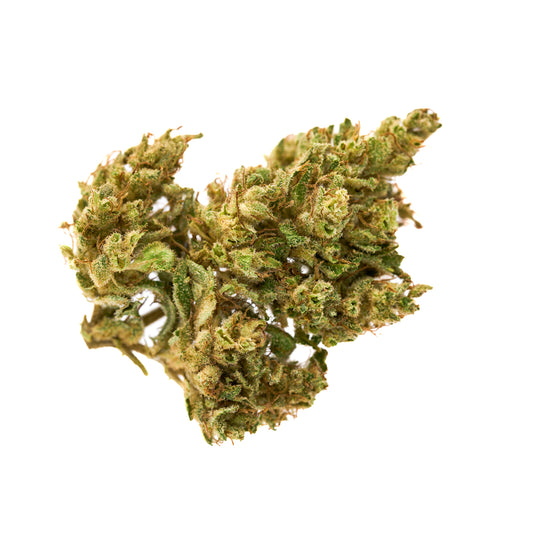
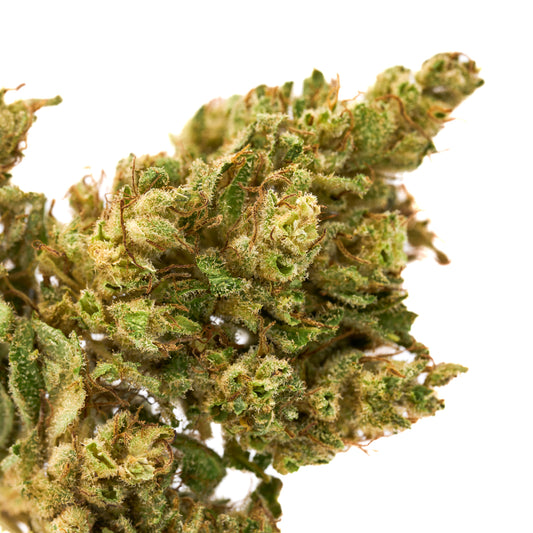
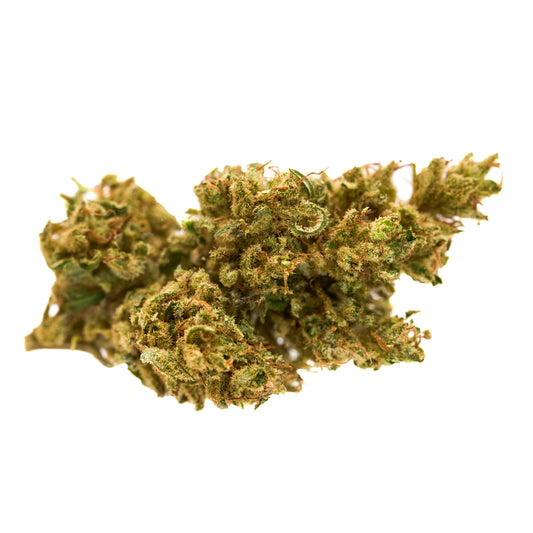
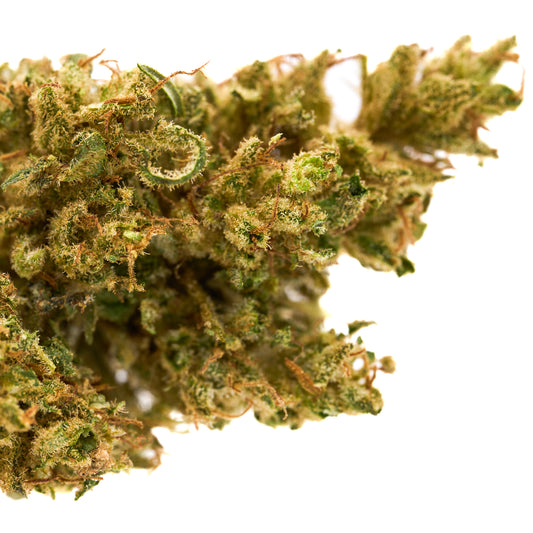
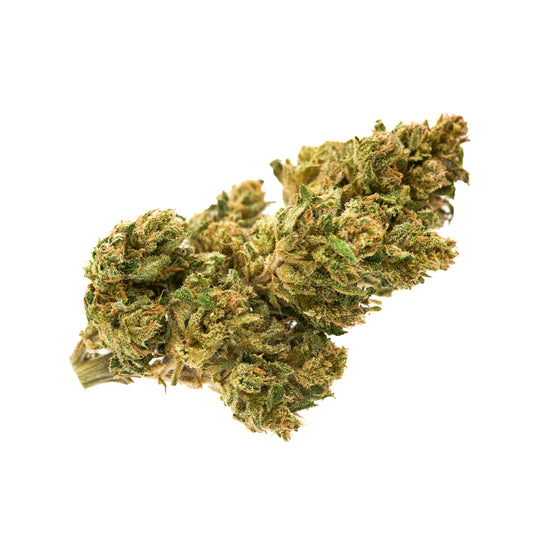
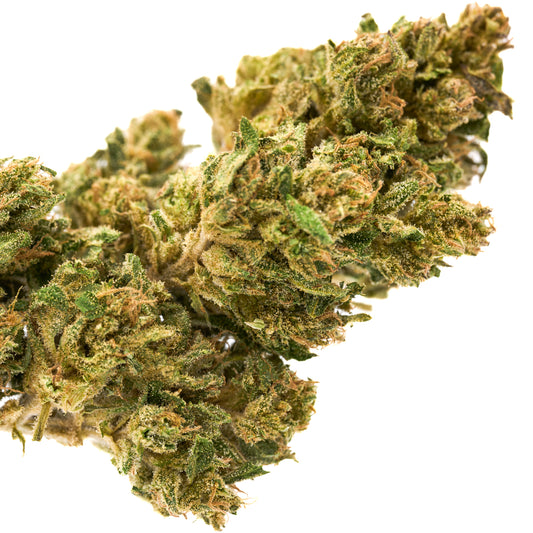


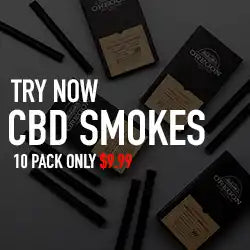
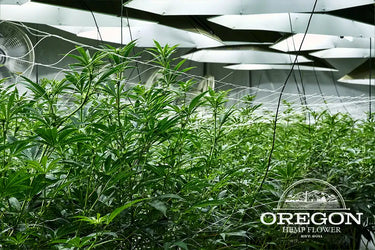
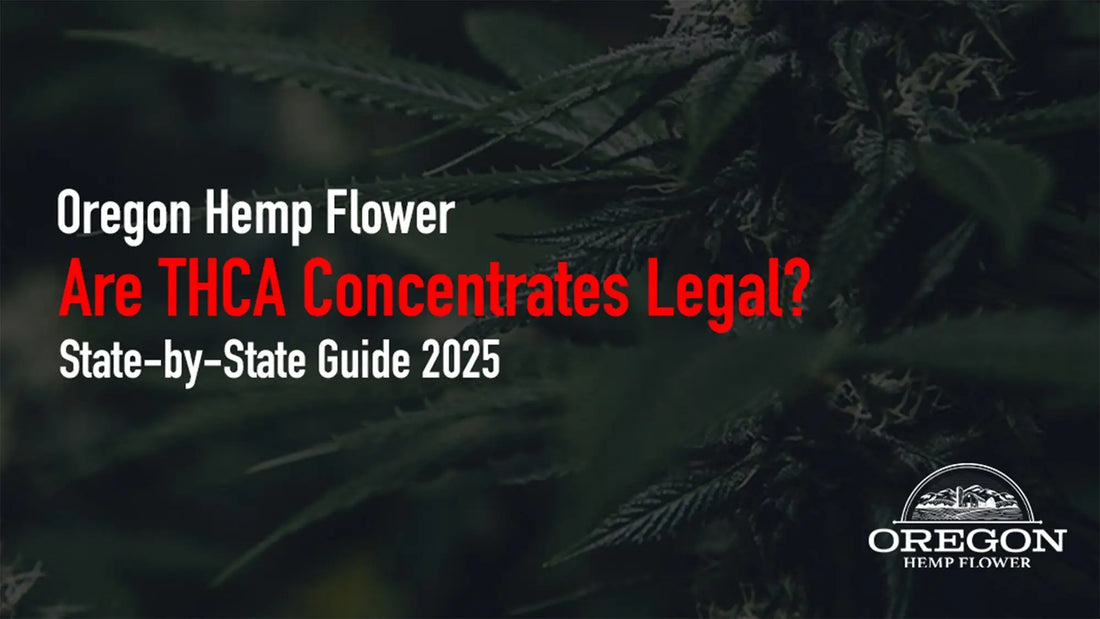
Leave a comment
Please note, comments need to be approved before they are published.